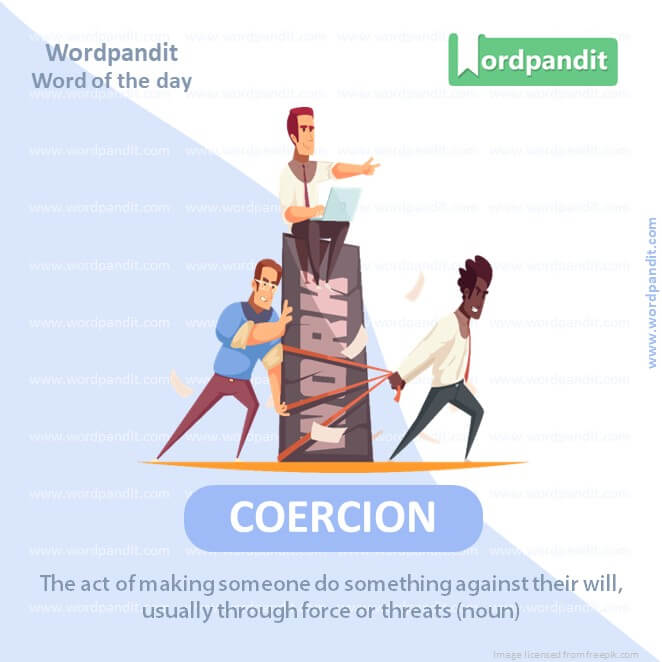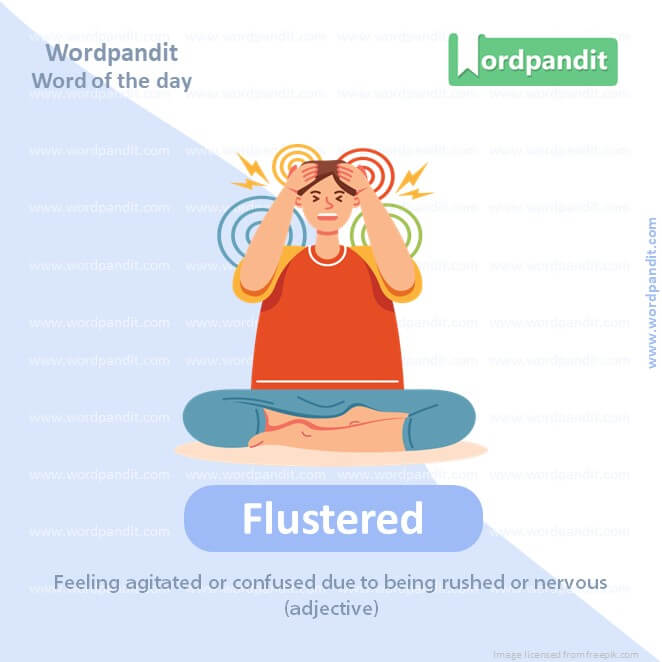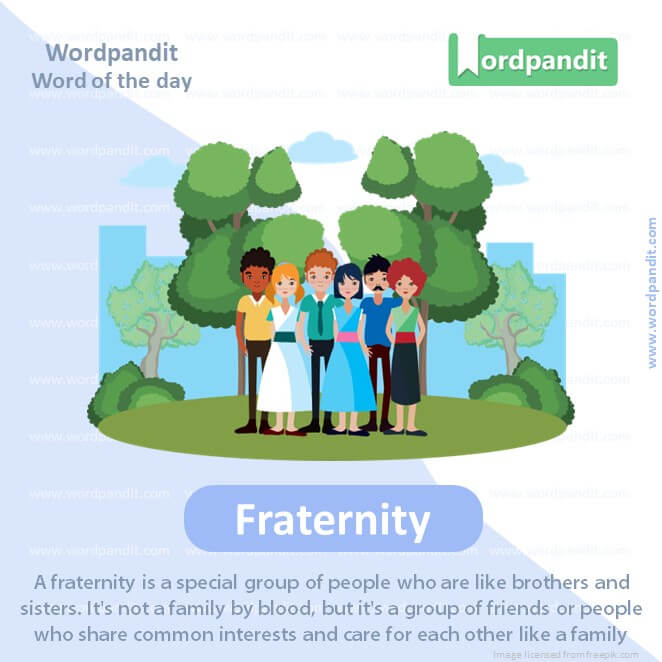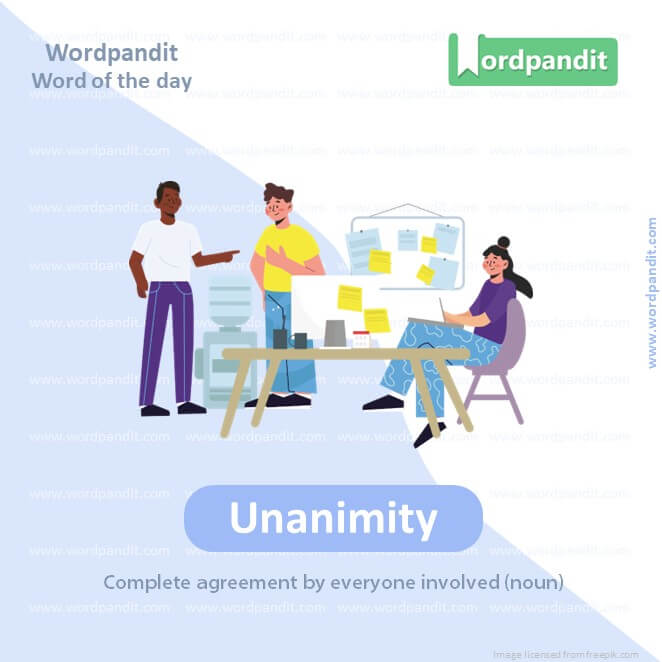Daily Vocabulary Words: List of Daily Used Words
Hi there. Welcome to this special section @ Wordpandit.
Our endeavour here is straightforward: highlighting important daily vocabulary words, you would encounter in The Hindu. This is your repository of commonly used words; essentially, we are posting a list of daily used words. Hence, this has significant practical application as it teaches you words that are commonly used in a leading publication such as The Hindu.
Visit the website daily to learn words from The Hindu.

WORD-1: Coercion
CONTEXT: History teaches us that strategies of isolationism or coercion have rarely produced strong coalitions.
SOURCE: THE HINDU
EXPLANATORY PARAGRAPH: Imagine someone is trying to make you eat broccoli, but you really don’t want to. If they say you won’t get dessert unless you eat it, that’s like forcing you to do something you don’t want to. That’s what “coercion” is – making someone do something by threatening them or forcing them in a way that’s not nice.
MEANING: The act of making someone do something against their will, usually through force or threats (noun).
PRONUNCIATION: koh-UR-shuhn
SYNONYMS: pressure, force, compulsion, intimidation, bullying, constraint, duress
USAGE EXAMPLES:
1. The detective was accused of coercion for forcing a confession out of the suspect.
2. Laws are in place to protect workers from coercion by their employers.
3. She felt a sense of coercion to agree with her friends to avoid conflict.
4. The government used economic coercion to enforce political agreements.

WORD-2: Enormously
CONTEXT: The export of electricity to India is an enormously rewarding transaction for Nepal,” he added soon after.
SOURCE: THE HINDU
EXPLANATORY PARAGRAPH: Think of the biggest ice cream sundae you can imagine, so big you couldn’t possibly eat it all. That’s what “enormously” means – something that’s really, really big or a lot more than usual.
MEANING: To a very great extent or degree; extremely (adverb).
PRONUNCIATION: ih-NOR-muhs-lee
SYNONYMS: vastly, hugely, greatly, immensely, tremendously, significantly, extensively
USAGE EXAMPLES:
1. She was enormously proud of her daughter’s achievements.
2. The project’s cost has increased enormously over the last year.
3. He was enormously grateful for the help he received.
4. The city has grown enormously in the past decade.

WORD-3: Flustered
CONTEXT: the flustered minister told parliament: “I humbly thanked India for saving Sri Lanka through the last 13-14 months, giving us maximum number of tourists.
SOURCE: THE HINDU
EXPLANATORY PARAGRAPH: Imagine you’re trying to tell a story, but you keep mixing up the words because you’re nervous or in a hurry. That feeling of being all mixed up and not calm is what “flustered” means.
MEANING: Feeling agitated or confused due to being rushed or nervous (adjective).
PRONUNCIATION: FLUS-terd
SYNONYMS: agitated, disturbed, rattled, disconcerted, perturbed, confused, upset
USAGE EXAMPLES:
1. She became flustered when she couldn’t find her notes before the presentation.
2. He got flustered during the job interview and forgot his answers.
3. The unexpected question left her feeling flustered.
4. Trying to multitask left him flustered and less productive.
WORD-4: Litigant
CONTEXT: It is easy to say that the presence of a litigant is not required in appellate forums but the reality is that every litigant wishes to visit his lawyer and witness court proceedings involving his case.
SOURCE: THE HINDU
EXPLANATORY PARAGRAPH: Imagine two friends arguing over who gets to play with a toy, and they ask a teacher to decide who is right. In a way, each friend is like a “litigant” – someone who is involved in a disagreement that needs to be solved by someone else, like a judge.
MEANING: A person involved in a lawsuit (noun).
PRONUNCIATION: LIT-i-guhnt
SYNONYMS: plaintiff, defendant, suitor, claimant, party, appellant, respondent
USAGE EXAMPLES:
1. The litigant filed a complaint against the company for damages.
2. She hired a lawyer to represent her as a litigant in court.
3. The judge addressed both litigants before starting the trial.
4. As a litigant, he was required to submit all relevant documents to the court.
WORD-5: Scrutinise
CONTEXT: a mechanism should be put in place to scrutinise the types of petitions that are permitted to be admitted in the top court.
SOURCE: THE HINDU
EXPLANATORY PARAGRAPH: Imagine you’re looking at a picture to find all the hidden animals in it. You look really carefully at every part of the picture. That’s what “scrutinise” means – to look at something very carefully to notice everything about it.
MEANING: To examine or inspect closely and thoroughly (verb).
PRONUNCIATION: SKROO-tuh-nize
SYNONYMS: examine, inspect, analyze, review, investigate, assess, probe
USAGE EXAMPLES:
1. The teacher will scrutinise your essays for any errors.
2. Before buying the house, they scrutinised every detail of the contract.
3. The scientist scrutinised the data to ensure accuracy.
4. Journalists scrutinise public figures’ actions and statements.
WORD-6: Graciously
CONTEXT: Both he and his wife, Bapsi Nariman, were good hosts. He graciously presented to me a signed copy of his autobiography, Before Memory Fades.
SOURCE: THE HINDU
EXPLANATORY PARAGRAPH: Imagine someone giving you a piece of their chocolate bar just because they want to be nice. They do it with a smile and without wanting anything back. That’s being “graciously” kind – doing something nice in a friendly and polite way.
MEANING: In a courteous, kind, and pleasant manner (adverb).
PRONUNCIATION: GRAY-shuhs-lee
SYNONYMS: kindly, courteously, politely, benevolently, generously, magnanimously, hospitably
USAGE EXAMPLES:
1. She graciously accepted the award on behalf of her team.
2. He graciously declined the invitation, citing prior commitments.
3. The host graciously welcomed all the guests to the party.
4. They graciously offered their help when it was needed the most.

WORD-7: Fraternity
CONTEXT: the Indian Constitution and the legal system while being a moral guide to the judicial and legal fraternity will always be remembered.
SOURCE: THE HINDU
EXPLANATORY PARAGRAPH: Think about a group of friends who always play together, help each other, and have special handshakes or rules that only they know. This special group of friends is like a “fraternity” – a group of people who share common interests and support one another like a big family.
MEANING: A fraternity is a special group of people who are like brothers and sisters. It’s not a family by blood, but it’s a group of friends or people who share comrnon interests and care for each other like a family (noun).
PRONUNCIATION: fruh-TER-ni-tee
SYNONYMS: brotherhood, guild, association, society, union, club, fellowship
USAGE EXAMPLES:
1. He joined the college fraternity to make new friends.
2. The fraternity organized a charity event to support local families.
3. Members of the fraternity share a bond of mutual respect and support.
4. The professional fraternity connects people from the same career field.
WORD-8: Etiquette
CONTEXT: His books on law were treatises and his courtroom etiquette was distinct and distinguished.
SOURCE: THE HINDU
EXPLANATORY PARAGRAPH: Imagine you’re at a fancy dinner and there are lots of forks and spoons. Knowing which one to use is part of “etiquette” – the rules for polite behavior in different situations, like saying “please” and “thank you,” or waiting your turn.
MEANING: The customary code of polite behavior in society or among members of a particular profession or group (noun).
PRONUNCIATION: ET-i-ket
SYNONYMS: manners, protocol, courtesy, decorum, propriety, civility, politeness
USAGE EXAMPLES:
1. Learning dining etiquette is important for formal events.
2. Professional etiquette includes responding to emails promptly.
3. Etiquette dictates that you should always thank your host.
4. She teaches children etiquette to prepare them for social situations.
WORD-9: Cavernous
CONTEXT: The cavernous void that he has left behind in the corridors of justice cannot be filled-in that easily.
SOURCE: THE HINDU
EXPLANATORY PARAGRAPH: Imagine a huge cave so big you could fit a whole school bus inside, and it echoes when you talk. That’s what “cavernous” means – something that’s very big and spacious like a giant cave.
MEANING: Resembling a cavern in size, shape, or atmosphere; spacious or vast (adjective).
PRONUNCIATION: KAV-er-nuhs
SYNONYMS: vast, spacious, huge, immense, extensive, gaping, hollow
USAGE EXAMPLES:
1. The cavernous hall echoed with the sound of footsteps.
2. They entered a cavernous room, dimly lit and mysterious.
3. The new sports stadium is cavernous, with thousands of seats.
4. His new apartment felt cavernous compared to his old studio.

WORD-10: Unanimity
CONTEXT: Previously somewhat divided in its approach to Russia, the bloc has acted in near unanimity — Prime Minister Viktor Orban of Hungary being the only exception.
SOURCE: THE HINDU
EXPLANATORY PARAGRAPH: Imagine if you and your friends are trying to decide which game to play, and everyone picks the same game without anyone disagreeing. That’s what “unanimity” means. It’s when everyone agrees and has the same opinion about something. It’s like a perfect team decision where everyone says “yes” to the same thing.
MEANING: Complete agreement by everyone involved (noun).
PRONUNCIATION: Yoo-nuh-NIM-ih-tee
SYNONYMS: Agreement, Consensus, Concord, Harmony, Accord, Unison
USAGE EXAMPLES:
1. The decision was made with unanimity by the committee.
2. They reached unanimity on the important issue.
3. Unanimity among the team members made the project successful.
4. Finding unanimity in such a diverse group was surprising.
vocabulary classes
In today’s multicultural world, knowledge is your greatest asset. And in this pool of knowledge, one arena that often goes underestimated is ‘vocabulary classes’. Most people limit the concept of vocabulary to knowing a few fancy words. However, it is much more; it’s about giving you the key to express your thoughts, feelings, and ideas more effectively.
Firstly, let’s examine why vocabulary classes are essential. When you take vocabulary classes, you’re essentially equipping your linguistic arsenal with words that allow you to articulate your messages more accurately. A well-developed vocabulary means not only knowing a multitude of words but also being able to utilize them in the appropriate context, thus enhancing your communication skills.
Now, how should we approach learning in vocabulary classes? The process of expanding your vocabulary should not be stressful. The best approach is to incorporate playfulness, curiosity, and active engagement. Incorporate reading, writing, listening, and speaking activities that are sourced from various contexts – books, movies, podcasts, discussions, and debates.
One important principle to remember when taking vocabulary classes is repetition. Repeated use of new words in different contexts will reinforce their meaning and solidify them in your memory, reducing the chance for forgetfulness.
Moreover, let’s not forget the role of technology in vocabulary classes. There’s a variety of applications and online platforms that have revolutionized the way we learn new words. They offer interactive classes, quizzes, games, and other engaging resources that make the learning process fun and effective.
In summary, vocabulary classes serve as a potent tool for enhancing your communication skills, and expressing your ideas confidently and clearly. Whether you are a business professional, student or just looking to improve your language abilities, vocabulary classes are amongst the best investments you could make. You not only learn new words but get the confidence and tools to wield them effectively.













